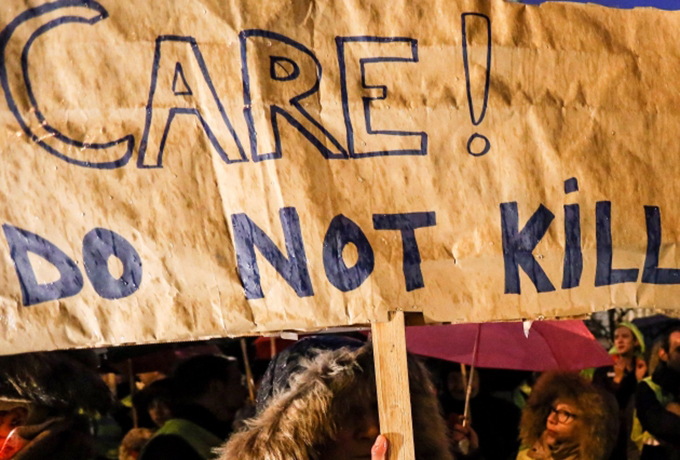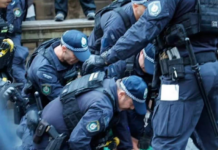
OPINION: By Richard McLeod
Two years ago, the Parliamentary Health Select Committee investigating public attitudes to euthanasia and assisted suicide in New Zealand received a total of 21,000 submissions, 16,000 (80 percent) of which were opposed to their introduction into New Zealand law.
Last December, however, our Parliament voted through ACT Party leader David Seymour’s End Of Life Choice Bill at its first reading, 76-44. Seymour’s Bill is now before another Select Committee, which has called for public submissions to be filed no later than February 20.
What is Seymour’s End of Life Choice Bill?
The Bill seeks to legalise in New Zealand the killings by doctors of patients, if a patient requests it (euthanasia). It will also legalise doctors helping their patients to commit suicide (assisted suicide, or, as Seymour calls it, “assisted dying”).
Both of these acts have been crimes under New Zealand law for as long as we have been a country – the crimes of murder and of aiding and abetting a suicide.
If passed into law, the End of Life Choice Bill will allow any New Zealander who is diagnosed with a terminal illness likely to cause their death within 6 months, and who experiences “unbearable suffering” (self-defined by the person), to ask to be killed by a doctor or to be given medication enabling them to take their own life.
This “terminal illness” criterion is the one that we hear most about in the media, but it’s not the only criterion in the proposed law.
Another criterion
Another criterion exists for other medical conditions. The Bill also allows euthanasia and assisted suicide for people with physical and intellectual disabilities, mental illness (likely to include depression and schizophrenia), and even physical injuries.
If you lost your arm or leg in a car crash you could be eligible. Who decides eligibility? The doctor, assisted by the patient.
What are the “safeguards” against abuse? The Bill promises many but delivers few.
What are the protections against coercion, or pressure from family? Effectively none.
What will happen if doctors euthanise someone who arguably might not have satisfied these vague criteria? Nothing – they won’t be prosecuted under the proposed law if they act in “good faith”, or of they fail to comply with its requirements, provided that they do not do so “wilfully”.
Under the Seymour Bill, death certificates will be falsified to conceal the true cause of death. And doctors who refuse to comply with their obligations under the new law could be prosecuted, even imprisoned.
The “conscientious objection” clause, which Seymour promises will protect those countless doctors who wish to play no part in the facilitation of state-sanctioned killings or suicides (the NZ Medical Association has opposed the law), does not require a doctor to do anything to which they have a “conscientious objection”, but nevertheless requires that doctor to play a part in the euthanasia or suicide process by referring a requesting patient on to a group that can arrange their death. Any objection is rendered meaningless.
Right soon becomes ‘duty’
Seymour claims his Bill will give eligible New Zealanders “choice”, and a “right to die”. But experience in other countries shows that a right to die for a few soon becomes a duty to die for many.
That’s why in the Netherlands, the first country to introduce euthanasia in 2002, the numbers of deaths started low, but from 2008 onwards suddenly began accelerating in alarming numbers.
Now it’s at over 7000 deaths each year, and the promised “safeguards”
are falling away dramatically.
Last year in the Netherlands, more than 400 patients were euthanised “involuntarily” – without their consent. Children can be euthanised if their parents give consent.
Have these developments satisfied those who campaigned for the law change in the Netherlands? No – now they’re clamouring to bring a new law change that would enable everyone over 65 years of age to access euthanasia or assisted suicide if they are “tired of living”.
Some slopes truly are slippery.
The problem with a law like this is that once we legalise euthanasia and assisted suicide for some, there’s no logical reason why it shouldn’t become available to others too – the “genie is out of the bottle” and it can’t be put it back in.
Risk for vulnerable
That is why increasing numbers of New Zealanders are deeply concerned about what Seymour’s Bill could, if passed into law, mean for many vulnerable New Zealanders – our elderly, our sick, our disabled, and our mentally unwell.
At a time when our country is reeling from record numbers of suicides each year, we are also now suddenly facing the prospect of a disturbing double-standard: the notion that suicide is acceptable for some New Zealanders but not others.
The irony here is that the Ministry of Health, the department currently spending tens of millions of dollars trying to reduce suicide in New Zealand, will become the same department vested with overseeing and administrating assisted suicide and euthanasia.
New Zealanders have the opportunity to write to the Select Committee to express their views on this Bill. It’s time to make our voices heard.
Richard McLeod is an Auckland lawyer and a commentator on euthanasia issues.
- Parliament calls for feedback on newborn enrolment and End Of Life choices
- Catholic bishops’ letter to all parishioners on End of Life Choices bill
- End Of Life Bill sparks debate about euthanasia and Māori values
- New Zealanders can now have their say on the End Of Life Choice Bill
- The dangers of euthanasia
- How to make a submission on the End of Life Choice Bill
- NO to the End Of Life Choice Bill – making a submission











































[…] the article by Richard McLeod (Jan […]
Comments are closed.